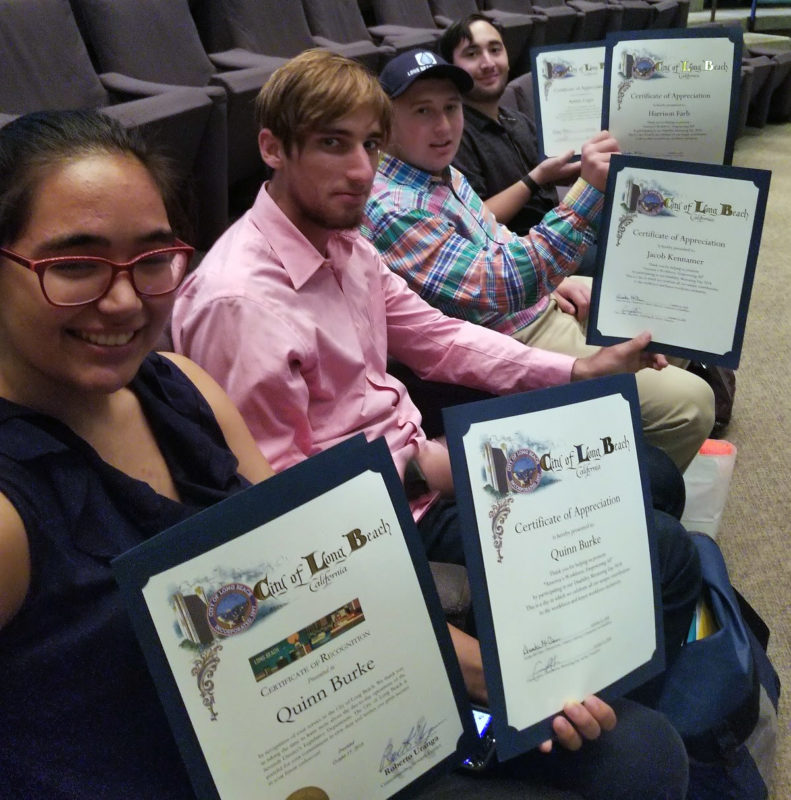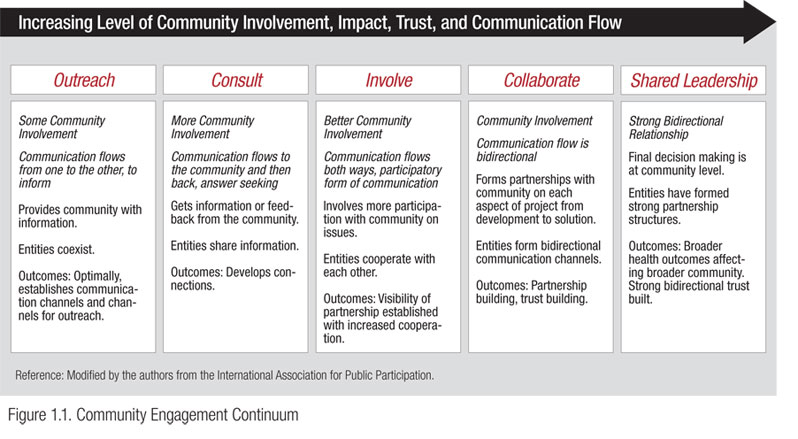In the past, opportunities for higher education and exciting career paths within a supportive and safe environment were few and far between for individuals with ASD. These challenges to independence and barriers to employment are now shrinking. We are now able to better equip and support individuals with ASD in overcoming these challenges and increasing social networking through impactful initiatives such as community engagement.

Jocelyn Howard
Community Engagement can be a journey or social process that calls for organizations and communities (local, regional/state, national or global) to collaborate in dynamic ways that strengthen higher education, employment, and community partnerships. The primary elements of community engagement, volunteering, and community service include the enrichment of scholarship, research, and creative activity. It enhances classroom curriculum, strengthening our methods of instruction and learning environments, and increasing social networking for young adults with ASD. When individuals with ASD become more involved in community, civic and social service, they are taking a proactive measure (real-world application) in their education and employment preparedness.
Case Study
Jodie is a first-year college student who wanted to increase her social networking skills, declare a major and get a job. Jodie had no work experience or resume, she could not decide on what to study in college and had some communication challenges. Specifically, she wanted to improve. She was advised to obtain an internship, participate in at least 10-20 hours of community service and to think about becoming involved in student government. The goal was to assist her in exploring her interests, to learn more about professionalism and workplace concepts. Jodie went on to participate in various community service events and local fundraisers. She obtained an internship as an Admissions Intern at CIP and volunteered at locations like her local animal shelter. Jodie also ran for Vice President of the Student Senate.
During her years of service as Vice President of the CIP Student Senate, Jodie participated in City Hall events and City Council meetings, helped organize a summer day trip to Catalina Island and helped support the recycling drive efforts. At the end of the year, Jodie shared how she and her fellow student senate members learned more about the importance of volunteering, how their efforts contribute to a larger goal or community milestone. The goal was to support student body events, clubs & activities throughout the year. She shared that her fellow peers learned more about professional attire, organization skills, critical thinking and how it felt “really good” to help someone, a special cause or project. Jodie also explained how she learned more about how to initiate conversations, be an active listener and build public speaking skills. She has gained social confidence, increasing her friendship circle and overall social networking skills. Jodie has held several on-call paid jobs this year and was recently presented with a Certificate of Accomplishment in Academic Excellence.
“I would recommend doing community service, volunteering or getting involved in student council …it’s good for practicing communication and learning how to give eye contact. I’ve learned skills that helped me get a paid job this summer like motor skills when doing tasks, attention to detail and teamwork.”
– Jodie

CIP students receive a certificate of accomplishment for participating at the annual Disability Mentoring Month in Long Beach, California City Hall Council Chambers
Two Strategies to increase community engagement among adults with ASD include an emphasis on social networking and transferable skill development, increasing positive outcomes for effective job readiness.
1) Social networking can be better understood by uncovering four vital elements; knowing your community, establishing strategies, building networks, and strategically mobilizing communities. When individuals with ASD learn effective tips and are coached to navigate through this process, they often benefit from new opportunities for growth and relationship development.
According to the community engagement continuum (Fig 1.1) of the International Association of Public Participation, methods in increasing levels of community engagement includes community involvement, impact, trust, and communication flow. When these concepts have a secure foundation and are then broken down and explored, we can creatively create opportunities for individuals with ASD to grow personally and professionally.

Other benefits of community engagement include the development of self-awareness, advocacy, confidence and that it can be really fun. As defined by Wasserman et al. (1994), social networks are not necessarily rooted in traditional relationships such as kinship or friendship, but can develop out of geographic proximity, work relationships, or recreational activities.
2) Transferable skills, known as “portable skills,” are qualities that can be transferred from one job to another. Individuals with ASD likely already possess many transferable skills employers want, like organization, interpersonal communication, critical thinking, initiative, and self-management, to name a few. Assessing an inventory of transferable skills obtained using a checklist can help an individual with ASD strategically plan how to acquire the skills needed for a career or job of interest.
The CIP career department enthusiastically spearheads these efforts to educate, motivate and mobilize our student body to become active members of their communities. We assist young adults with ASD to develop pathways toward employment and self-sufficiency by building a portfolio of quality employment experiences. We strive in assisting students in assessing an inventory of employment skills and related interests, developing pre-employment skills, supporting on-the-job experiences and managing the growth of employer relationships. We are able to help increase opportunities for our students with ASD to participate in their communities and learn the importance of networking as a starting point in uncovering possible job opportunities.
As individuals with ASD work to build the pre-employment skills necessary for the workplace, they can start by focusing on community engagement. As noted in the Career Continuum (McManmon et al, 2018), community service is the foundation of leveraging passion into pay, individuals with ASD can learn more about their interests and personalities through volunteering and community service-learning opportunities. When young adults on the spectrum actively participate, they are building invaluable transferable skills; acquiring knowledge that is applicable to developing a quality resume and work ethic.
To learn more about community engagement opportunities visit the websites below:
- https://www.nationalservice.gov/programs/americorps
- https://www.aapd.com/disability-mentoring-day/
- https://www.volunteermatch.org/search
Jocelyn Howard, BA is the Lead Career Coordinator for The College Internship Program (CIP), a national transition program for young adults with autism and other learning differences. For information about their five year-round and summer programs, visit www.cipworldwide.org or call 877-566-9247.
References
International Association of Public Participation. Advancing the practice of public participation (2019) https://www.iap2.org/page/foundations
Michael P. McManmon, Ed.D. with Jennifer Kolarik and Michele Ramsay, Ed.D. Foreword by Carol Gray (2018). Mploy A Job Readiness Workbook Career Skills Development for Young Adults on the Autism Spectrum and with Learning Difficulties Part 1, Chapter 1: The Career Continuum 18-21.
Rogue Community College ©2019 http://www.roguecc.edu/emp/Resources/transferable_skills_checklist.htm
Wasserman S, Faust K (1994) Social network analysis: methods and applications. Cambridge, United Kingdom: Cambridge University
https://outreach.uiowa.edu/about-us/defining-community-outreach-and-engagement



